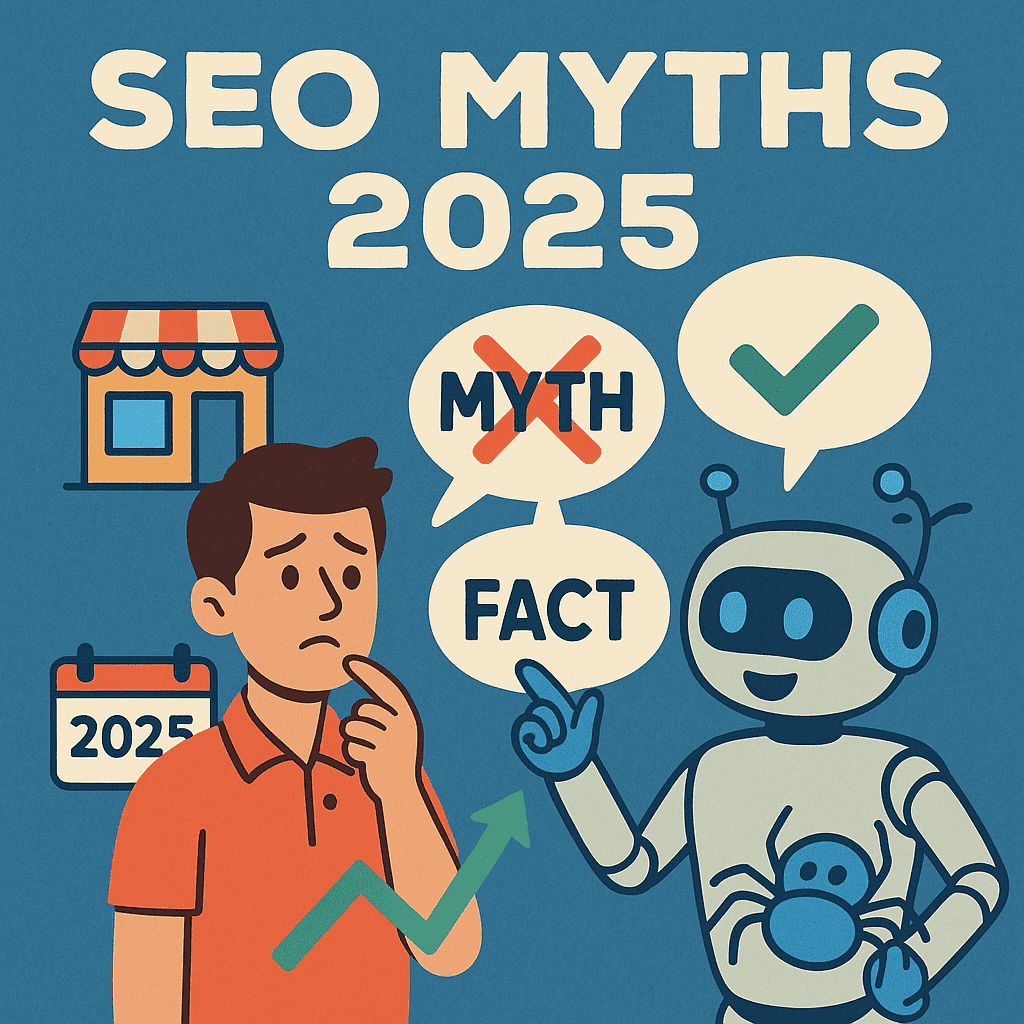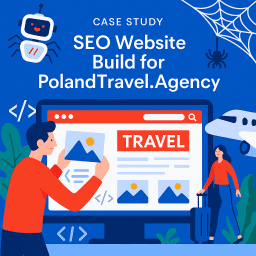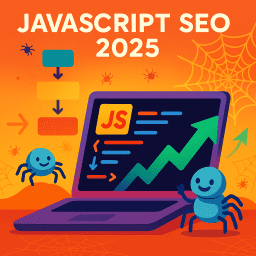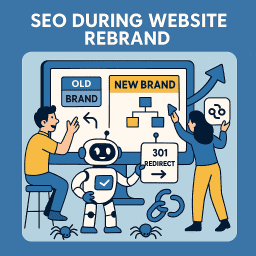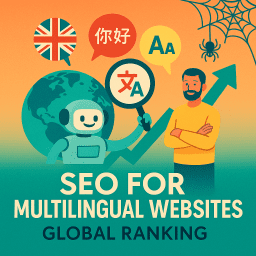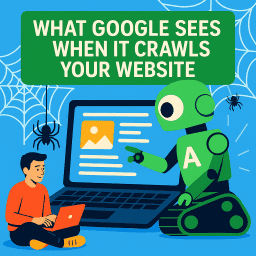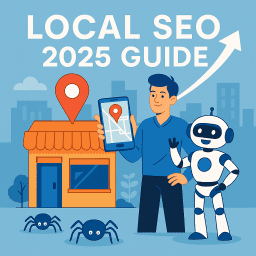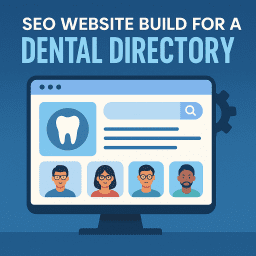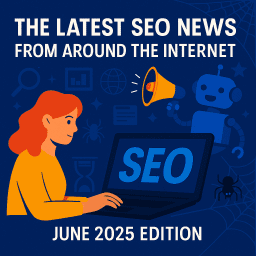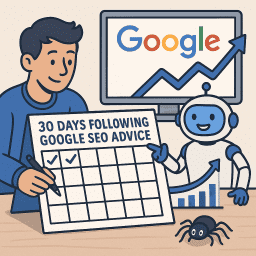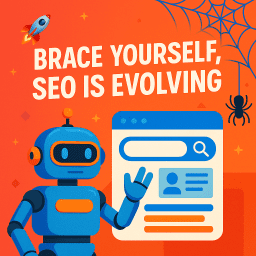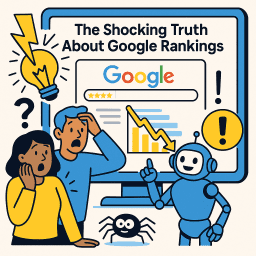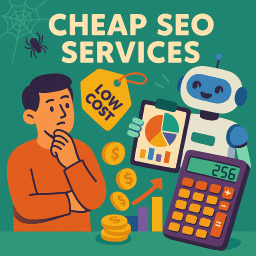Top SEO Myths Hurting Small Business Rankings in 2025
🚫 Debunking outdated ideas that could be hurting your rankings
🔥 2025 SEO Myths Busted — What Actually Works Now
SEO has changed a lot in the past few years—but misinformation hasn’t. Many small business owners still operate under outdated or flat-out wrong assumptions about what works in search. And those misconceptions? They’re often the reason websites underperform, lose rankings, or never gain visibility at all.
Let’s debunk the most common SEO myths still floating around in 2025—and show you what to focus on instead.
❌ Myth 1: “Meta Keywords Help You Rank”
Reality: Meta keywords have been ignored by Google for over a decade. Including them does nothing for your SEO—and in some cases, they might even expose your keyword strategy to competitors.
❌ Myth 2: “The More Pages, the Better”
Reality: Quality trumps quantity. A bloated site with thin or duplicate content can actually harm your rankings. Focus on building helpful, unique, and comprehensive content—not just churning out more pages.
❌ Myth 3: “SEO Is a One-Time Fix”
Reality: SEO is ongoing. Algorithms evolve. Competitors improve. User expectations shift. Treating SEO as a set-it-and-forget-it project guarantees long-term decline.
❌ Myth 4: “You Have to Submit Your Site to Google”
Reality: Google will find your site through backlinks and crawlers. Submitting via Search Console can help for brand-new sites or reindexing—but it’s not a ranking signal.
❌ Myth 5: “Social Media Likes Improve SEO”
Reality: While social media helps with visibility and traffic, Google has confirmed that likes, shares, and follows are not direct ranking factors. However, content that performs well on social can earn backlinks—which do matter.
❌ Myth 6: “Buying Backlinks Is an Easy Shortcut”
Reality: Paying for links from dodgy websites is a one-way ticket to a penalty. Focus on earning links through good content, partnerships, PR, and directories that actually matter.
❌ Myth 7: “Ranking #1 Is the Only Goal”
Reality: Not all clicks go to the top result—especially in a SERP filled with snippets, ads, and carousels. What matters is visibility, traffic quality, and conversions—not just a vanity position.
❌ Myth 8: “SEO Doesn’t Work Anymore”
Reality: SEO is alive and well—but it’s more competitive and nuanced. It now includes structured data, AI-driven search features, Core Web Vitals, and E-E-A-T signals. If your SEO hasn’t evolved, of course it won’t work.
📈 What to Focus on Instead
- 🎯 Build people-first content that answers real questions
- 🔗 Earn high-quality backlinks naturally
- ⚙️ Optimise for speed, mobile, and accessibility
- 📊 Use Google Search Console and GA4 to monitor performance
- 🔍 Focus on long-tail keywords and user intent
- 🧠 Improve trust with clear authorship, credentials, and citations
💬 What the Experts Are Saying
- Marie Haynes: “Small businesses often fall behind because they follow SEO advice from 2012. If you’re not adapting, you’re disappearing.”
- John Mueller (Google): “There’s no magic trick to SEO. It’s about clarity, relevance, and long-term value.”
- Aleyda Solís: “Don’t chase hacks. Focus on building a site that deserves to rank.”
✅ Conclusion
SEO myths are dangerous because they waste time, money, and opportunities. If you’re running a small business in 2025, it’s time to let go of outdated tactics and focus on strategies that actually work. The basics haven’t changed: build helpful content, improve your site’s performance, and serve your audience better than the competition.
Ignore the noise. Get the fundamentals right—and Google will take notice.
📝 Recap and Clarify: Post-Specific FAQs
Is SEO a one-time task I can set and forget?
No. SEO is an ongoing process. Search engines, user behaviour, and competitors are constantly evolving—your strategy should evolve with them.
Do I need to submit my site to Google to appear in search results?
No. Google discovers most websites automatically. However, submitting your sitemap via Search Console can speed up the indexing process and help monitor performance.
Will using more keywords improve my rankings?
No. Keyword stuffing can harm your rankings. Modern SEO focuses on relevance, search intent, and natural language—not cramming in exact matches.
Is blogging dead for SEO?
Definitely not. Blogging remains one of the best ways to target long-tail keywords, build topical authority, and provide helpful content to users.
Do I need to hire a big agency for SEO?
Not necessarily. Many small businesses achieve great results with freelancers, in-house efforts, or small agencies—especially if they focus on fundamentals and consistency.
Will ranking #1 automatically bring me more sales?
Not always. Rankings are just one part of the puzzle. Traffic needs to convert, which depends on content quality, site UX, and targeting the right keywords.
Is SEO all about Google?
While Google is dominant, SEO should also consider Bing, local search platforms, voice search, and emerging AI-driven search environments for broader visibility.
Does domain age still matter for SEO?
No. Domain age is not a ranking factor on its own. Google cares more about content quality, authority, and relevance than how long your domain has existed.
Can social media activity directly improve my rankings?
Social signals aren’t direct ranking factors, but sharing content via social media can drive traffic, build awareness, and earn backlinks—indirectly supporting SEO.
Do I need backlinks to rank well?
Yes, backlinks still matter in 2025—but quality beats quantity. Focus on earning relevant, trusted links through great content and relationships, not spammy tactics.
SEO isn’t a one-time task—it’s an ongoing investment in visibility. – David Roche
Video Recap – 🚫 SEO Myths Small Businesses Still Believe in 2025 (Busted!)
Still think SEO is about stuffing keywords and chasing backlinks? Think again. In this video, we’re busting the biggest SEO myths small businesses still believe – and showing you what really works in 2025.


